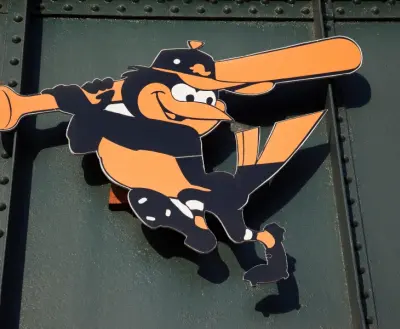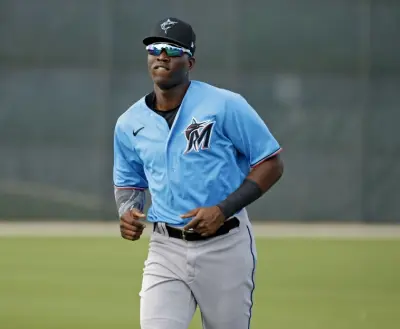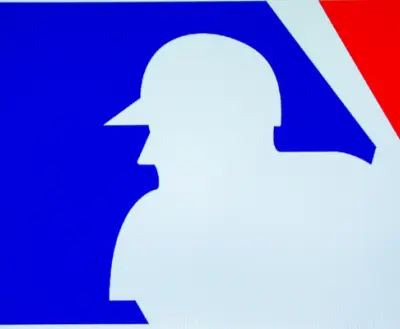No matter which MLB team you support, there are some players who you can’t help but admire. They may play for a rival, but you love their style and secretly hope that one day they’ll be wearing your shirt.
But then there's another whole group of players. They may have talent - they might even play for your team - but they're not someone who you can see in a good light. There are many reasons why this might be the case - we look at three of the most disliked players in MLB history.
Albert Belle
Albert Belle was an incredible slugger who had outstanding achievements on the field for Cleveland Indians, LA Dodgers, Chicago White Sox, and Oakland Athletics. In 1995, he became the first player to hit 50 home runs and 50 doubles in a single season and remains one of only six players to have achieved nine consecutive seasons with a 100-RBI.
Unfortunately, his talent was overshadowed by his demeanour off the field. His teammates disliked him due to his habit of smashing things up when things didn't go his way. He smashed up the clubhouse thermostat with his baseball bat on one memorable occasion when another player turned the temperature up higher than he liked. He refused to do interviews with the media and was generally known for being aggressive and surly.
However, it wasn't just his grumpy nature that has kept him out of the Hall of Fame. He spent some time in alcoholic rehab, was arrested for a DUI and indecent exposure, and spent 90 days in jail for stalking an ex-girlfriend. His infamous temper also made an appearance when teenagers knocked on his door for Halloween when he chased them in his car and allegedly hit one. The case was settled out of court.
All things considered, it’s not hard to see why he doesn’t have many fans in the game.

Carl Mays
Being responsible for the only fatality in MLB is bound to put you on the black list, and that’s just what happened to Carl Mays.
Born in 1891, he had a career with the Boston Red Sox, the Yankees, the Cincinnati Reds and the New York Giants. Despite his undoubted talent as a pitcher, Carl Mays was never voted into the Hall of Fame because of the infield incident with Ray Chapman and his demeanour after the event.
Mays wasn't a popular player at any of his clubs, earning a reputation for being abrupt, rude and abrasive. He had a strict Methodist upbringing and refused to play on Sundays, another habit that didn't win him any fans. However, his performances on the mound drew the most criticism as he was a confirmed headhunter, clashing with players due to his aggressive tactics.
On 16 August 1920, Mays was chasing the 100th win of his career. Facing Ray Chapman in bat, Mays was frustrated with the hitter for crowding the plate so let loose with a fastball that he claimed was in the zone. Chapman didn't stand a chance, and the ball hit his head. The strike was so loud that Mays thought Chapman had connected with his bat, and he fielded the ball to first base. Chapman tried to stumble to first base but fell down twice and didn't get up. Clear that something was very wrong, players raced to his aid - but Chapman never left the mound. He continued pitching after Chapman was taken to hospital.
Diagnosed with a fractured skull, Chapman died 12 hours later after surgery. The DA deemed it to be an accident, and no charges were filed. When asked about the incident, Mays insisted he felt no guilt because he wasn't deliberately intending to hurt Chapman. This attitude and his demeanour on the mound while Chapman was lying on the floor dying left Mays with very few supporters in the game.
Ryan Braun
A glance at Ryan Braun's trophy cabinet will reveal an impressive collection: Rookie of the Year 2007, MVP 2011, five Silver Slugger Awards and six All-Star picks are just some of his more notable achievements. Considered as a five-tool player for his excellence in multiple areas, Braun should have been a straightforward candidate to become one of the game's best-ever players.
Unfortunately, his career was blighted with drugs scandals. In 2011, he tested positive for steroids, but Braun fiercely disputed the findings. The sample was taken on a Saturday, and Braun blamed the test collector, Dino Laurenzi Jr, for failing to post the sample the same day. The MLB argued that the sample was untampered, was stored correctly and would not have degraded but Braun was gunning for Laurenzi. He publicly claimed he was anti-Semitic (Braun has Jewish heritage), and also suggested that as Laurenzi supported the Cubs, the result was in question. A second test came back negative for steroids, and the result was overturned. Braun doubled down on his accusations against Laurenzi, expressing relief at the result.
In 2013, Braun was found to have links with Biogenesis of America, a clinic that was alleged to have been supplying performance enhancing drugs to pro athletes. Despite claiming to have used the clinic's services to acquit himself, Braun accepted the 65-game ban. In August 2013, Braun came clean and admitted using steroids in 2011 to recover from an injury. He apologised for the comments made about Laurenzi, but for many, the ferocity of his previous attacks on the innocent collector was too little, too late.






